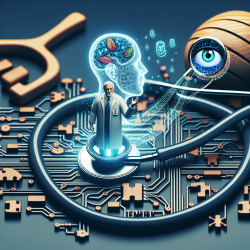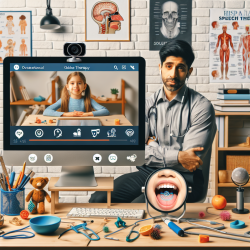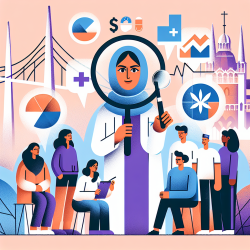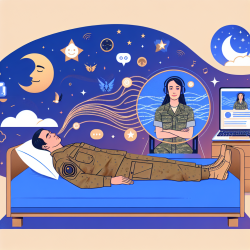Introduction
In the realm of medical and scientific advancements, Donald Lindberg's pioneering work in computerized systems and artificial intelligence has left an indelible mark. His early career, as detailed in the research article "A scientific mind embraces medicine: Donald Lindberg’s education and early career," showcases his relentless pursuit of integrating technology with medicine to improve clinical outcomes. For practitioners in speech-language pathology, especially those engaged in online therapy services like TinyEYE, Lindberg's work offers valuable insights into leveraging data-driven approaches for enhanced therapeutic outcomes.
Data-Driven Decision Making in Speech-Language Pathology
Donald Lindberg's development of the world's first computerized laboratory information system at the University of Missouri-Columbia is a testament to the power of data in transforming healthcare. By expediting the analysis and reporting processes, Lindberg demonstrated how technology could enhance efficiency and accuracy in medical settings. Speech-language pathologists can draw parallels from this by adopting data-driven decision-making in their practice. Utilizing data analytics can help practitioners tailor therapy plans to the specific needs of each child, ensuring more personalized and effective interventions.
Implementing Artificial Intelligence in Therapy
Lindberg's work with knowledge-based systems like AI/RHEUM and AI/COAG illustrates the potential of artificial intelligence in medical diagnostics. These systems were designed to assist clinicians by providing differential diagnoses based on input symptoms and findings. In speech-language pathology, AI can be harnessed to develop tools that assess speech patterns, track progress, and suggest modifications to therapy plans. By integrating AI into online therapy platforms, practitioners can offer more precise and adaptive interventions, ultimately improving outcomes for children.
Encouraging Further Research and Collaboration
Lindberg's career was characterized by collaboration with experts across various fields, from computer science to rheumatology. This interdisciplinary approach was crucial in developing systems that were both innovative and practical. Speech-language pathologists are encouraged to engage in collaborative research with technologists and data scientists to explore new ways of integrating technology into therapy. By fostering partnerships, practitioners can contribute to the development of cutting-edge tools that enhance the efficacy of online therapy services.
Conclusion
Donald Lindberg's legacy serves as a powerful reminder of the transformative potential of technology in healthcare. For speech-language pathologists, embracing data-driven approaches and artificial intelligence can lead to more effective and personalized therapy outcomes. By continuing to innovate and collaborate, practitioners can ensure that they are providing the best possible care for their young clients.
To read the original research paper, please follow this link: A scientific mind embraces medicine: Donald Lindberg’s education and early career.










